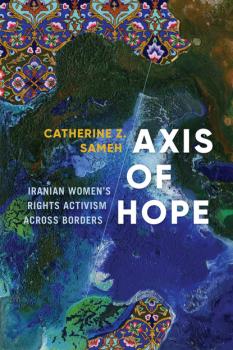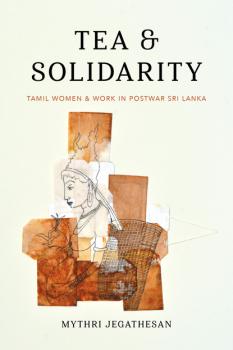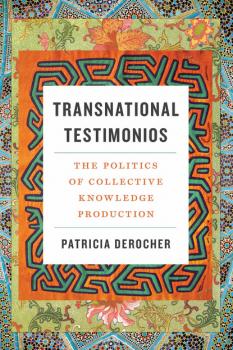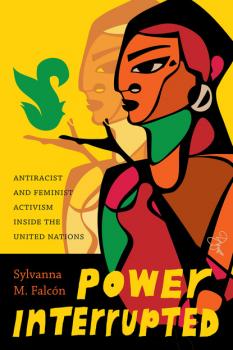Decolonizing Feminisms
Скачать книги из серии Decolonizing FeminismsAxis of Hope
Political tensions between Iran and the United States in the post-9/11 period and the Global War on Terror have set the stage for Iranian women’s rights activists inside and outside Iran as they seek full legal equality under the Islamic Republic. Axis of Hope recounts activists’ struggles through critical analysis of their narratives, including the One Million Signatures Campaign to End Discriminatory Law, the memoirs of human rights lawyer and Nobel Prize–winner Shirin Ebadi, and the life story of feminist Mahboubeh Abbasgholizadeh and her activist project ZananTV. Catherine Sameh examines how Iranian women’s rights activists have cultivated ways of thinking of and being with each other that rupture the relentless difference-making and violence of coloniality through local and transnational networks along axes of feminist solidarity, friendship, and love.Crucial to countering despair and cynicism about Iran as well as the dangerous interventions by Western powers “on behalf of” Iranians, activists’ experiences speak to the possibilities and challenges of transnational alliances in confronting oppressive regimes. These stories are particularly germane in such precarious times, marked by war, isolation, sanctions, and the intense demonization of Iranians and Muslims, as well as authoritarianism, militarism, and patriarchal nationalisms around the world. Situating postreform women’s rights activism within the unfolding, decades-long project to democratize Iran from within, Axis of Hope makes a timely contribution to studies of feminist movements, women’s human rights in Muslim contexts, activism and new media, and the relationship between activism, civil society, and the state.
Tea and Solidarity
Beyond nostalgic tea industry ads romanticizing colonial Ceylon and the impoverished conditions that beleaguer Tamil tea workers are the stories of the women, men, and children who have built their families and lives in line houses on tea plantations since the nineteenth century. The tea industry’s economic crisis and Sri Lanka's twenty-six year long civil war have ushered in changes to life and work on the plantations, where family members now migrate from plucking tea to performing domestic work in the capital city of Colombo or farther afield in the Middle East. Using feminist ethnographic methods in research that spans the transitional time between 2008 and 2017, Mythri Jegathesan presents the lived experience of these women and men working in agricultural, migrant, and intimate labor sectors.In Tea and Solidarity , Jegathesan seeks to expand anthropological understandings of dispossession, drawing attention to the political significance of gender as a key feature in investment and place making in Sri Lanka specifically, and South Asia more broadly. This vivid and engaging ethnography sheds light on an otherwise marginalized and often invisible minority whose labor and collective heritage of dispossession as “coolies” in colonial Ceylon are central to Sri Lanka’s global recognition, economic growth, and history as a postcolonial nation.
Transnational Testimonios
The activist storytelling practice of testimonio, long associated with Latin American struggles for justice, forges coalitions across social differences for the purpose of social change. Beyond Central and South America, Patricia DeRochery examines testimonios from a wide range of geopolitical sites, including Argentina, Egypt, Haiti, India, Jamaica, and Trinidad, as well as the United States, and suggests that feminist testimonios offer a model for cross-border feminist alliance building. Transnational Testimonios focuses on the questions of translation, knowledge, and power that characterize the creation and reception of these life writings. DeRocher demonstrates how these stories can mobilize social activism and intervene in epistemological impasses between the Global North and South, offering vital tools for reimagining transnational feminist politics.
Asian American Feminisms and Women of Color Politics
Asian American Feminisms and Women of Color Politics brings together groundbreaking essays that speak to the relationship between Asian American feminisms, feminist of color work, and transnational feminist scholarship. This collection, featuring work by both senior and rising scholars, considers topics including the politics of visibility, histories of Asian American participation in women of color political formations, accountability for Asian American �settler complicities� and cross-racial solidarities, and Asian American community-based strategies against state violence as shaped by and tied to women of color feminisms. Asian American Feminisms and Women of Color Politics provides a deep conceptual intervention into the theoretical underpinnings of Asian American studies; ethnic studies; women�s, gender, and sexual studies; as well as cultural studies in general.
Power Interrupted
In Power Interrupted, Sylvanna M. Falc�n redirects the conversation about UN-based feminist activism toward UN forums on racism. Her analysis of UN antiracism spaces, in particular the 2001 World Conference against Racism, Racial Discrimination, Xenophobia, and Related Intolerance in Durban, South Africa, considers how a race and gender intersectionality approach broadened opportunities for feminist organizing at the global level. The Durban conference gave feminist activists a pivotal opportunity to expand the debate about the ongoing challenges of global racism, which had largely privileged men�s experiences with racial injustice. When including the activist engagements and experiential knowledge of these antiracist feminist communities, the political significance of human rights becomes evident. Using a combination of interviews, participant observation, and extensive archival data, Sylvanna M. Falc�n situates contemporary antiracist feminist organizing from the Americas�specifically the activism of feminists of color from the United States and Canada, and feminists from Mexico and Peru�alongside a critical historical reading of the UN and its agenda against racism.�
Humanizing the Sacred
In recent years, global attention has focused on how women in communities of Muslims are revitalizing Islam by linking interpretation of religious ideas to the protection of rights and freedoms. Humanizing the Sacred demonstrates how Sunni women activists in Malaysia are fracturing institutionalized Islamic authority by generating new understandings of rights and redefining the moral obligations of their community. Based on ethnographic research of Sisters in Islam (SIS), a nongovernmental organization of professional women promoting justice and equality, Basarudin examines SIS members' involvement in the production and transmission of Islamic knowledge to reformulate legal codes and reconceptualize gender discourses. By weaving together women's lived realities, feminist interpretations of Islamic texts, and Malaysian cultural politics, this book illuminates how a localized struggle of claiming rights takes shape within a transnational landscape. It provides a vital understanding of how women «live» Islam through the integration of piety and reason and the implications of women's political activism for the transformation of Islamic tradition itself.





